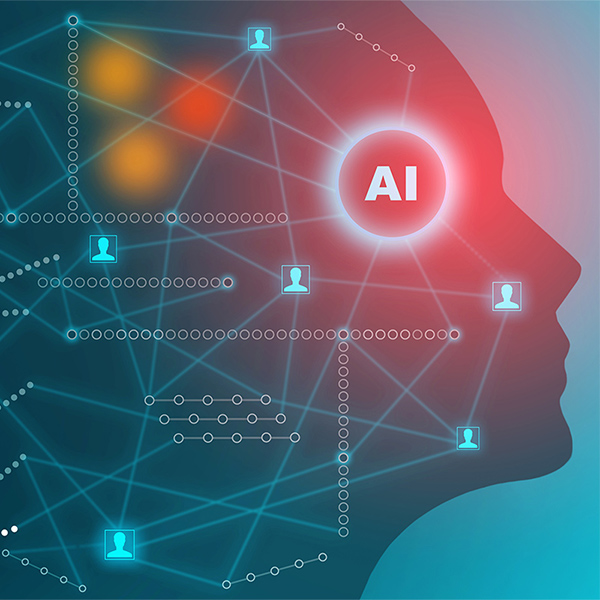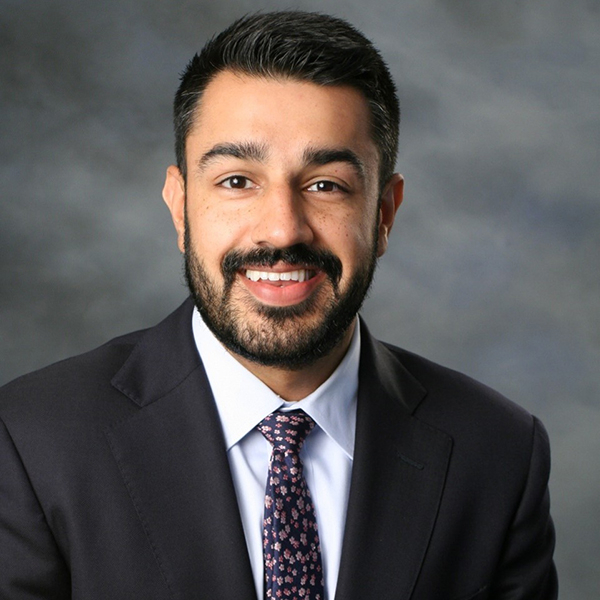Program Spotlight: The AI Fellowship in CVD at Northwestern Medicine

Advances in data science, machine learning and artificial intelligence (AI) are creating major waves in every sector of the U.S. economy and many predict the health care industry will follow suit. Northwestern Medicine's Bluhm Cardiovascular Institute has partnered with Northwestern University's McCormick School of Engineering to create a unique fellowship intended to train cardiology, cardiac surgery and internal medicine physicians in the art of science of AI. As a fellow currently enrolled in the program, I am excited to share some highlights and brief remarks from the Program Director Jim Thomas, MD, FACC.
Artificial Intelligence Fellowship in Cardiovascular Disease
The Artificial Intelligence Fellowship in Cardiovascular Disease program includes structured mentoring in conducting research at the interface of clinical medicine and AI and formal training in AI algorithm development.
The educational component of the program comes in the way of McCormick's Master of Science in Artificial Intelligence (MSAI) degree program. Individuals in this fellowship participate in an alternative pathway of the degree program, titled the MSAI + X curriculum. This pathway is for those who already hold advanced degrees, such as MD, PhD or JD, and are looking to utilize AI tools and lead teams doing AI related work in their respective domains. MSAI + X students are not required to have an extensive background in computer programming.
The curriculum starts with an intensive Python programming bootcamp, along with training in basic statistics and linear algebra in the summer quarter to get everyone up to speed, before MSAI + X students join the remaining MSAI students who start their education in the fall quarter. The program is 1 year in duration and successful completion leads to a Master of Science in Artificial Intelligence. Full tuition support is provided through a scholarship. There is ample opportunity to participate in research with an expectation that fellows publish. There are research "check-in" meetings biweekly. Cardiology fellows can complete this program during the third year of general cardiology fellowship.
As the inaugural year of this fellowship concludes, graduates participated in the following research projects:
- Development of a recurrent neural network used to decipher typical vs. atypical atrial flutter from an intracardiac electrogram
- Use of computer vision to predict the presence of cardiac amyloidosis from nuclear imaging
- Development of a deep neural network able to detect COVID-19 pneumonia via chest x-ray
- Discovery of characteristics found in patients with kidney disease that correlate with the development of concurrent cardiovascular disease
I spoke with Program Director Jim Thomas, who had the following reflections:
Dr. Thomas, what aspects of this fellowship are you most excited about?
JT: What really appealed to me was the hands-on nature of the fellowship. Trainees really get down in the trenches with the full panoply of techniques available in AI. Through the year, they apply these techniques to areas such as natural language processing, automated image analysis, and signal processing, with an abundance of real-world data available at the medical campus to build their research projects around.
What else would you like to share with potential applicants to this fellowship?
JT: We are looking for applicants who are training for careers in cardiovascular disease, broadly defined to include cardiology, cardiac surgery, and imaging. While some familiarity with statistical methods will be very helpful, we certainly don't expect expertise in computer science or programming. Our summer programming bootcamp will get you up to speed in time to join the others in the general MSAI program in the fall.
This fellowship provides the opportunity to be at the cutting edge of cardiovascular medicine, where AI is being integrated into cardiovascular care and allows for cross-disciplinary collaborations at a top tier research university. I encourage interested applicants to learn more through the links below or to email me directly with any questions.

This article was authored by Baljash Cheema, MD, cardiology fellow at Northwestern University. Email: baljash-cheema@northwestern.edu
This content was developed independently from the content developed for ACC.org. This content was not reviewed by the American College of Cardiology (ACC) for medical accuracy and the content is provided on an "as is" basis. Inclusion on ACC.org does not constitute a guarantee or endorsement by the ACC and ACC makes no warranty that the content is accurate, complete or error-free. The content is not a substitute for personalized medical advice and is not intended to be used as the sole basis for making individualized medical or health-related decisions. Statements or opinions expressed in this content reflect the views of the authors and do not reflect the official policy of ACC.